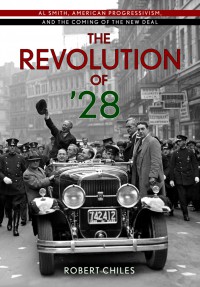Building a progressive majority

Al Smith is best remembered today as the first Catholic to win the nomination of a major political party. In doing so his campaign overcame considerable opposition from within his own prejudice-bound Democratic Party, and though he fell well short of winning the White House in 1928 he is credited with winning for them the support of the millions of ethnic voters who would go on to become an important part of the "New Deal coalition" that made the Democrats the dominant political party in America for a generation. While his appeal traditionally has been credited to their identification with his ethnic and religious background, in this book Robert Chiles makes the case that this obscures the real source of his appeal, which was the unabashedly progressive agenda he advocated in that race, one rooted in the policies he pursued throughout his career in New York politics.
As Chiles explains, Smith was drawn to progressivism through his interactions with settlement house activists in New York City in the 1910s. Though them he gained a greater awareness of the issues facing immigrants and urban workers, which he sought to address through government policy. As a state legislator and governor he pursued reforms on issues ranging from conservation to government efficiency, all of which were central to his platform as the Democratic presidential candidate. This won him the support of many ethnic voters, whose political identification at this time was in a state of flux. Drawn to the candidate of a party who addressed their concerns, they maintained their allegiance for his successor, Franklin Roosevelt, who drew upon much of Smith's progressive legacy when formulating the policies of his own administration during his time as president.
By highlighting Smith's progressivism, Chiles contributes both to our understanding of this important politician and his long-term impact upon American politics. In the process he also helps to explain the under-appreciated origins of a political shift that shaped the nation in which Americans live today. Together it makes for a book that no student of the era or of American political history more generally can afford to ignore.
 3
3






